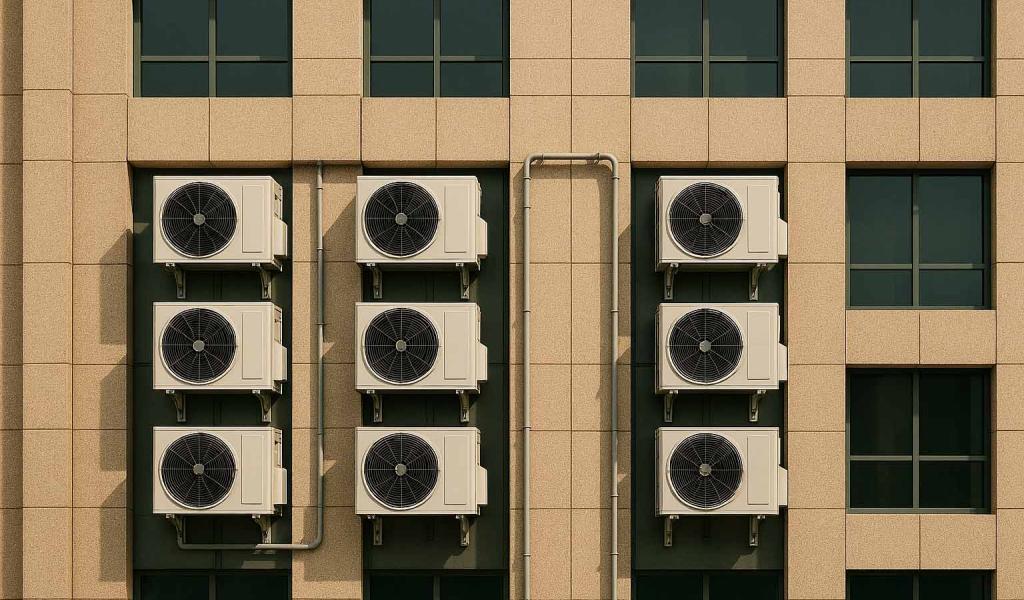News
EAC Achieves Energy Efficiency Milestone with MEPs for Cooling Appliances

The East African Community (EAC) has officially gazetted regionally harmonized Minimum Energy Performance Standards (MEPS) and labelling requirements for air conditioners and refrigerating appliances, marking a transformative milestone in sustainable cooling. This landmark achievement was endorsed by the East African Standards Committee (EASC) on 26 March 2025 and gazetted by the EAC Council of Ministers on 02 July 2025.
The newly adopted standards - EAS 1213:2025 for air conditioners and EAS 1214:2025 for refrigerating appliances - represent a crucial step toward reducing energy consumption and strengthening regulation across the region. This builds upon the successful adoption of regional lighting standards in July 2022.
Regional Collaboration Drives Change
The approval follows a rigorous harmonization process involving six EAC Partner States: Burundi, Kenya, Rwanda, South Sudan, Tanzania, and Uganda. The process began in 2020, informed by a joint market assessment covering 21 countries and extensive stakeholder consultations.
"The EAC region is flooded with inefficient and low-quality refrigerators and air conditioners due to limited enforcement of standards, limited testing infrastructure and lack of affordable financing for energy efficiency projects. On behalf of EACREEE, we are grateful to United Nations Environment Programme (UNEP), United Nations Industrial Development Organisation (UNIDO), EAC Secretariat and Partner States for supporting the development of EAC regional MEPS for air conditioners and refrigerating appliances” said Denis Ariho, Lead Technical Expert, EACREEE.
Technical Specifications
The gazetted MEPS define comprehensive performance criteria:
- Air Conditioners: Standards cover non-ducted single-split, self-contained air-cooled units, and portable air conditioners with rated cooling outputs up to 16 kW. Efficiency metrics include Cooling Seasonal Performance Factor (CSPF), Energy Efficiency Ratio (EER), Coefficient of Performance (COP), and Annual Performance Factor (APF). Standards promote refrigerants with low global warming potential (GWP ≤ 750 for ductless split ACs and GWP ≤ 150 for self-contained units) with zero ozone depletion potential.
- Refrigeration Appliances: MEPS cover single-phase and three-phase vapour compression refrigerators, refrigerator-freezers, and freezers with rated volumes between 10 L and 1,500 L. Refrigerant requirements include GWP ≤ 20 and zero ozone depletion potential.
Implementation Strategy
The MEPS will follow a two-phased approach: Phase 1 (2025) introduces initial requirements, while Phase 2 (2027) implements more stringent standards. A moratorium period allows Partner States to transition to energy-efficient appliances. "Uganda is proud to have led the regional efforts as Secretariat of EASC/TC039," said Joard Mubatsi, EACS Secretariat. "This milestone reflects collective dedication towards enhancing energy efficiency and supporting transition to environmentally sustainable cooling technologies."
International Partnership and Impact
The initiative was led by UNEP-U4E, Lawrence Berkeley National Laboratory, EACREEE, and was supported by UNIDO’s EELA Program, with funding from Sida, UK DEFRA, and the GEF.
"The approval of regionally harmonised MEPS is a landmark achievement," said Patrick Blake, UNEP-U4E Programme Manager. "Once implemented, these standards are expected to save 3.7 TWh of electricity annually by 2040, avoid 2.5 million tonnes of greenhouse gas emissions, and reduce electricity bills by approximately USD 618.9 million."
"The adoption demonstrates the power of coordinated action to accelerate sustainable energy transitions," added Valeria Arroyave Cardozo, EELA Project Manager, UNIDO. "Technical alignment can unlock regional markets, attract investment, and contribute meaningfully to both climate action and economic resilience."
Future Outlook
By establishing enforceable efficiency thresholds, the region expects to reduce electricity demand, cut emissions, protect consumers from inefficient products, and contribute to achieving SDG 7 and the Kigali Amendment.